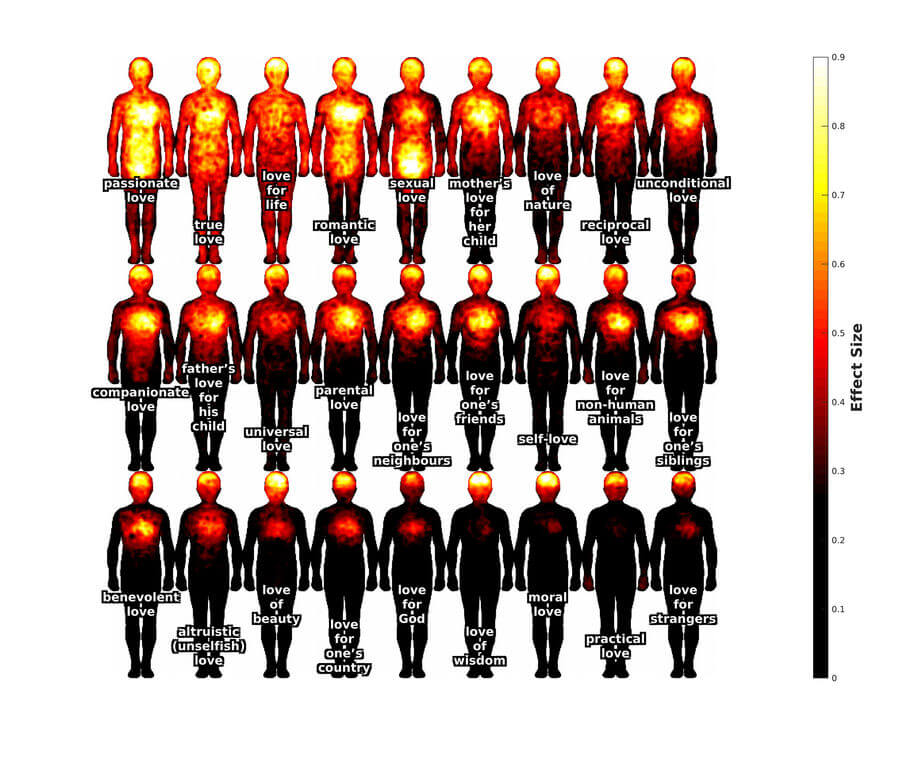ESPOO, Finland — The heart may be the “love muscle,” but a new study finds the feeling of love is all in the head. Aalto University researchers have identified where in the body people feel various types of love and the intensity with which they experience this emotion. They found that love forms a spectrum, with some types felt more intensely than others, and that the sensation of love tends to center in a person’s head.
“It was noteworthy, though not very surprising, that the types of love associated with close relationships are similar and are the most strongly experienced,” says Pärttyli Rinne, a philosopher who coordinated the study.
The research was a joint initiative between Rinne and Professor Emeritus Mikko Sams. Furthermore, doctoral researcher Mikke Tavast took charge of analyzing the data, while Enrico Glerean developed the research methods.
The researchers surveyed participants on their experiences of 27 distinct types of love, ranging from romantic and parental love to feelings for strangers, nature, God, and even oneself. Participants had to indicate on a body silhouette where they felt each type of love and how intensely they experienced it both physically and mentally.
To clarify, their findings, published in Philosophical Psychology, illustrated that all the love types were most intensely felt in the head. However, the intensity and spread varied in other body areas. Some types of love were felt only in the chest, while others radiated throughout the entire body. The more intense the love, the more widespread the feeling was in the body.
“‘Love between persons is divided into sexual and non-sexual. The types of love that are particularly close to each other are those that have a sexual or romantic dimension,” Rinne explains in a university release.

“It was also interesting to find a strong correlation between the physical and mental intensity of the emotion and its pleasantness. The more strongly a type of love is felt in the body, the more strongly it’s felt in the mind and the more pleasant it is,” Rinne adds.
“When we move from more strongly experienced types of love to less strongly experienced types, the sensations in the chest area become weaker. It may be that, for example, love for strangers or wisdom is associated with a cognitive process. It may also be that there are pleasant sensations in the head area. This is something that should be investigated further.”
Rinne also touched upon the cultural nuances in love experiences. For instance, if the study were conducted in a deeply religious community, love for God might be the most dominant feeling. Similarly, for parents in relationships, love for children could be the most potent emotion.
The researchers received funding from the Kone Foundation, the Academy of Finland, and the Emil Aaltonen Foundation.
You might also be interested in:
- A better love life could save your memory during old age
- Loveless marriage: Nearly half of parents only stay together for the kids
- Meant to be: 3 in 4 parents say meeting their partner was love at first sight


Heartache, heartbreak, there are neural cells on the heart.